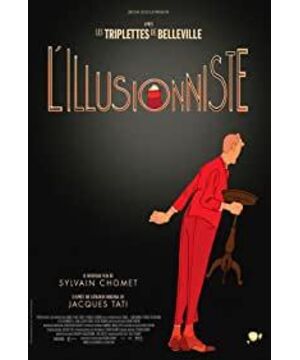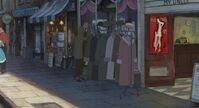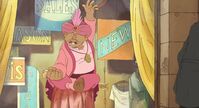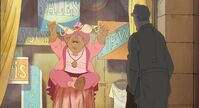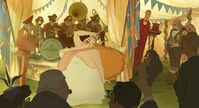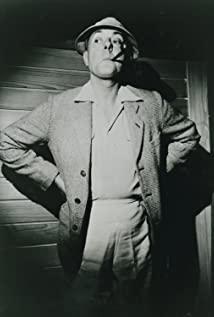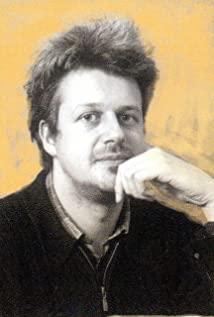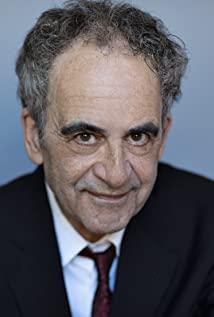I am not a cartoon fan (let’s not talk about Chinese-style ink and wash animation first). I believe that this form is more profound and richer in terms of theme and form than ordinary feature films shot on film. Is limited. The point here is not whether the CGI technology has been released to the extent that it can be true, but generally speaking, people’s expectations of cartoons are more of a simple and cheerful naïveté (of course there are some European animations with formal and exploratory significance, such as Poland and Russia. Some differences) have a great relationship with the different expectations of "representation". Of course, the early Disney cartoons fascinated Eisenstein and wrote a monograph on cartoon research that I think is still the most valuable to date. What he values more is the mystery and uncertainty like "fire" in the nature of cartoons, animism (unpredictable random deformation of the body, etc., completely free from the indexical shackles of "realism"). Of course, if this kind of vitality and uncertainty is gradually industrialized, categorized, and modelized, its charm will gradually be lost, such as most contemporary Disney cartoons. 3D is just a stopgap for sensory stimulation. For Miyazaki Hayao's works, I have read a few and I have good imagination, but there are too many works, and there are inevitably repetitions, so I have no greater interest in seeing them one by one. Chomet's work is an exception. Probably because they are few in number and maintain the uniqueness, originality, exquisiteness and extraordinary imagination of "craftsmen". And, using the seemingly "simple" form of animation to imply some complex aspects such as ambiguous, cold, sad, sensitive... and so on, and these things, (perhaps again prejudices), are deeply rooted in France Culture. An inappropriate example: Just like a little girl who seems innocent and white, but has the rough and miserable life experience, abundant thoughts, sensitive and subtle emotions of an adult... a weird and a little disturbing, but impressive The combination. Somewhat similar to the precocious little girl played by Natalie Portman in "Killer Leon".
The magician in "L'illusionniste" (painted according to the image of Tati, semi-autobiographical due to Tati's screenwriter in this film) accidentally crashes into a theater where Tati movies are being shown, and the image of Tati on the screen ( From "Mon Oncle") when I looked at each other (this reminds me of the cross-cut of the close-up of Chen Xiangqi's face in Cai Mingliang's "Long Men" and the close-up of the character's face in "The Dragon Inn" on the screen), I can't help but my eyes feel hot. She shed tears. At the end, I couldn’t help but tears all over my face, especially when I saw the puppets in the window that were sold by artists (now reduced to beggars). Facing his face, sitting there lonely... It seems a bit embarrassing for the researcher who is accustomed to looking at movies with a "detached" mentality at a distance. After calming down, I also began to think about why there was such a strong emotional reaction-this situation is very rare, and I often have to ridicule the deliberately sensational movies. I remember the last time I shed tears when I watched a movie. I should have watched Lou/ *Ye’s "Yi /He/ Yuan" at the gene siskel film center. It was because I felt the same as the trauma of that generation, and the whole nation was unclear and difficult. Healing trauma (I also remember director Yang Shupeng telling me that after watching this movie in Paris, he came out and sat on the street crying).
In what ways does "L'illusionniste" touch me? The general summary may be due to the following reasons: (1) Sympathy (primary level) of the characters and their situations; (2) The passage of time (the 1950s) and the history of film Encounter), the sensitivity and feelings of the filmmaker (Tati); (3) The result of emotion may not have an absolute relationship with the specific movie (although it is an inducement). In many cases, it is also borrowed from other people's glasses to pour one's own block. The nature of oneself is also true for those who admire the retro.
It is somewhat sentimental, but not too straightforward, properly controlled, and can often be subtracted into addition. And once again confirm: the emotional appeal of the film to the audience has a certain relationship with "realism" (realism), but it has no absolute relationship. I never thought that I would cry when watching cartoons. There is no essential difference between the images that have no substance and are drawn (or the images that are made by clay) and the images of real objects captured and shot by cameras, in terms of whether they move people or not. More importantly, it is whether it can create the overall atmosphere and emotional tone of the film, or express certain key themes, and cause the associations of the audience in a specific social and historical environment...Here, it is economic, Technological development and changes in social entertainment and cultural forms have caused an impact on the traditional handicraft industry model-including handicraftsmen and folk artists who live on performances. The circus, magicians, acrobats, and clowns have all been eliminated, living in cheap hotels, becoming beggars or attempting suicide; replaced by pop music (an allusion to The Beatles in the film), television (shown in the window), The consumerism represented by giant department stores and showcases (magicians are forced to perform in the windows for their livelihoods, make money and spend them in the same place-buy beautiful coats, skirts and high heels for the girl Alice, and the latter is a typical captive of consumerism ), global commercial capitalism (the behavior and accent of the "nouveau riche" Americans in the film as an example)...
The tone of Tati’s original script may be a little clearer, and it’s not known before it has been read. Because the script was written in the late 1950s, these great changes are more significant in the contemporary era. With the development of digital technology, network media, digital images, animation and games...the visual and image culture of mass production and unlimited reproduction will bring the handicraft era into Intensive farming and uniqueness squeeze into the corner, unsustainable. As a hand-crafted creator and artist, Chomet is more likely to empathize, projecting his thoughts and feelings about the times into Tati's script. In Levitt's new work "36 vues du Pic Saint-Loup" (2009), there is also a very miserable description of the small audience of the mobile circus. There is a kind of late pain in the silence. Constantly thinking about the relationship between the present and the past to redefine our position in space-time coordinates, the trajectory of culture and art, reflection and reflection, often disappointed and confused.
The magician does not exist. This is the process of awakening Alice, the director awakening himself, and the audience. No matter how sighed and melancholy, it is impossible for everyone to go back to the past in the time scroll, or stay in the present forever. Many changes beyond our personal power will still happen in this world, and in order to survive, we must learn to adapt. . For most people, resistance is only partial, not the norm.
The music seems simple, light, and sometimes cheerful, separated from the image to reflect the sad tone. The sound is like a Tati movie, sometimes ambiguous, similar to murmur, and sound effects often become sound gags that create comedy effects.
I am also happy to read references to other movies from it. In addition to Tati’s "Mon Oncle" mentioned above, she also pays homage to the famous tennis court scene in "Mr. Yu Luo's Holiday" (1953); Alice climbs up the hill with the magician, and suddenly falls to the ground, rolling straight. Down, a comedy scene reminds me of the famous suicide scene in Bresson's "Muchette" (1967); the old magician worked hard to please Alice, who was not well versed in the hardships of the world, and once reminded of Joseph von • Steinberg's "Blue Angel" (1930).
View more about The Illusionist reviews


